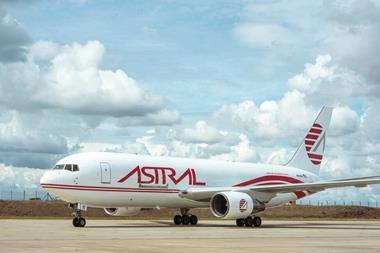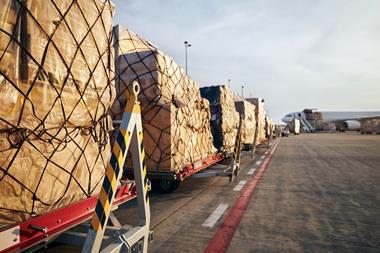At the start of June, Logistics UK partnered with Aberdeen Standard Investment’s AIPUT (Airport Industrial Property Unit Trust) to present government with a call for action over the future of air freight, writes Logistics UK's Alex Veitch.
In the proposals presented, 11 key recommendations were made to enable the UK to facilitate the sustainable growth of its vital airfreight industry.
One of these recommendations focused on consumer behaviour. According to Logistics UK’s Logistics Report 2021, online retail averaged 28.1% of retail sales in 2020, a large increase compared to 19.2% in 2019.
While e-commerce was on the rise prior to the pandemic, Covid-19 has seen consumers relying on online shopping and doorstep deliveries more than ever before.
And consumer behaviours over the course of the pandemic, and recent years, have also changed; just-in-time and next day deliveries – often at low, or no, delivery costs – are no longer an ambition, but have become an expectation.
To support this demand, express freight airlines operate a significant number of services. However, with the UK one of the top three online shopping nations around the globe, industry must continue to innovate.
Logistics UK is calling on government to facilitate the movement of airfreight throughout the day and, where possible, at night to keep goods moving and reaching their end customers in good time.
Included in the 11 key priorities – and to be explored in future columns – were infrastructure, the need for government to promote and develop a positive public perception of aviation, innovation, decarbonisation and airfreight growth.
A healthy airfreight sector is a crucial part of the new digital economy and must be recognised and supported as such. Logistics UK will continue to work with government and the aviation industry to ensure air freight is able to reach its full potential as a key driver of economic growth and as a crucial component of a Global Britain.
Alex Veitch is Logistics UK’s general manager of public policy















